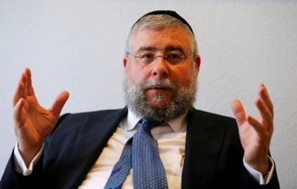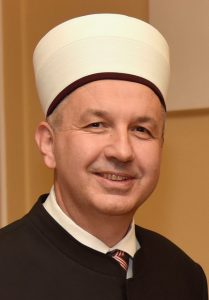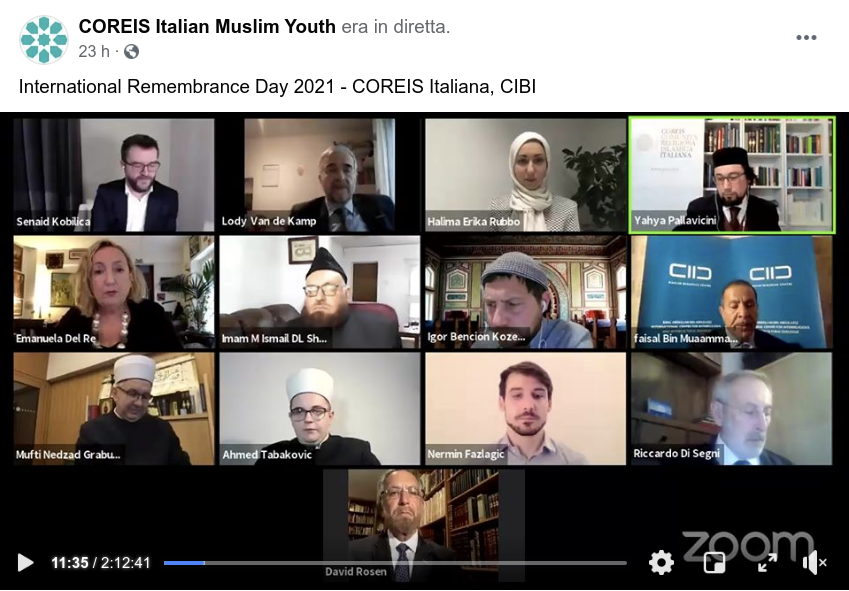The ruling of the European Court of Justice on 17 December last on the prohibition of non-pre-stunned slaughter in Flanders and Wallonia. (Halal/Kosher).
The date is 9 November 2020. The European Jewish community commemorates tonight the “Kristallnacht”, the indescribable events which took place on this date in 1938 in Nazi-Germany. That night, hundreds of synagogues were set on fire and thousands of Jewish owned shops and businesses were looted and destroyed. Many Jews were arrested and sent to concentration camps. The exact number of fatal victims caused by that brutal violence has never been confirmed.
During the commemoration service the first Vice-President of the European Union Frans Timmermans addresses the Dutch Jewish community. “Without a Jewish community, Europe is no longer Europe.” These are words similar to the ones of the French President Hollande a few years ago after another anti-Semitic incident at a Jewish cemetery in his country: “I know the feeling of fear that prevails among the Jewish people. But our Republic is stronger than hatred. Anyone guilty of anti-Semitism or racism will be relentlessly tracked down, arrested and convicted”.
Barely a month after the speech of European Commissioner Timmermans, his European Court of Justice rules on December 17. “The ban on kosher and halal slaughter in Flanders and Wallonia, parts of the European Union, is not in conflict with religious freedom within Europe. This ruling gives rise to the possibility for all Member States throughout the European Union to ban ritual slaughter”.
During the same Kristallnacht commemoration in which Frans Timmermans speaks, the Protestant Church of the Netherlands “confesses publicly guilt about its role during the Second World War towards the Jewish community. “We fell short in speaking and being silent, in acting, in attitude and in thought.”
Just four weeks after Timmerman’s words and the church’s confession of
guilt, the European court is stretching out a helping hand to its member states to seriously obstruct the Jewish community in performing its religious duties, this time by banning the act of kosher slaughter.
A duty that should be fulfilled by virtue of the Jewish religious legislation. In the same way, this obstruction also applies to the Islamic community in Europe.
Apparently this infringement of religious freedom for the Islamic and Jewish faiths does not seem to concern other religious communities in Europe very much. The commotion about the church’s confession had not subsided yet, and once again the church “falls short in speaking and keeps silent in acting, attitude and thought”.
The church does not react on the religious restrictions that befall Muslims and Jews, this time in a united Europe.
Frans Timmermans calls out that “A Europe without a Jewish community is not Europe”. About such a Europe Mr. Timmermans does not have to worry. There will be no Europe without Jews. Jews are Europeans. We Jews have been for almost two thousand years European residents and will continue to be so. Our communities will not relocate for just a steak or meat ball.
What will be the result of this kind of interpretation by the European Court of Justice of the fundamental rights such as the right to religious ideology, is a Europe where “freedom of religion” has no meaning.
And this will not only be applicable to Judaism and Islam, but for Christianity and any other religion or conviction as well.
This ban is not about animal welfare, this is not about equating animal rights with human rights. It is about the exclusion, discrimination, and doing injustice towards entire communities within our European society. Once again, Jews and Muslims are portrayed as citizens whose “barbaric customs” and religious beliefs are still lingering on somewhere in the dark Middle Ages while the rest of Europe boosts proudly about its 21st century civilization.
In the Netherlands, the Party for the Animals has already prepared its new parliamentary bill to ban kosher and halal slaughter. The Dutch Islamic and Jewish communities have not forgotten how, just a few years ago, they were abandoned by a large majority in Parliament during an earlier attempt to ban the religious acts of slaughter. A repetition of this is certainly not ruled out with this judgment of the European Court.
For our communities, this means that we would have to obtain our meat in a different way. For the rest of Europe, it means an irreparable damage to its dignity when freedom of religion is being applied in this way. It presents an irreversible step towards a polarizing and discriminatory Europe which is in strong contradiction to the reason why European countries committed themselves to a United Europe after the tragedies of the Second World War.
While I am writing these words, an email comes in from the European Coordinator on combatting Anti-Semitism. This message briefly informs the Jewish community that the Handbook for Using the New Definitions of Anti-Semitism has been published. This handbook was commissioned by the European Commission together with the International Holocaust Remembrance Alliance (IHRA) with the support of the German Presidency of the European Union.
This letter is accompanied by a statement from Margaritas Schinas, a colleague of Frans Timmermans, also Vice President of the European Union. Mr. Schinas tells us Jews that “We must fight anti-Semitism wherever we come across it. Jewish life is part of our society and we are committed to protecting it ”.
In other words: The European Court of Justice creates the possibility for the anti-Jewish measure of banning ritual slaughter in all the member states of the European Union.
At the same time, the two vice-presidents of the Union are speaking out against any form of anti-Semitism within European society. “Jewish life is part of our society”.
I assume that these two leaders in the European Union, if they are really committed to what they are saying, would now be heading for Luxembourg. There they will demand from their own Court of Justice that this ruling on ritual slaughter must immediately be dismissed.
Mr. Frans Timmermans and Mr. Margaritas Schinas are committed to do so in order to save their own credibility. And at the same time, they must demonstrate that our European civilization will not accept this gross violation of fundamental rights of freedom of religion.
This is the English translation of an article published by Rabbi Lody B. van de Kamp (Amsterdam) which was published on the 12th January 2021 in the Dutch Magazine Nieuw Wij.
https://www.nieuwwij.nl/opinie/beperking-fundamentele-rechten-is-onacceptabel/
“Nieuw Wij, New We” is a online platform that aims to connect cultures, religions, philosophies and individual citizens.



